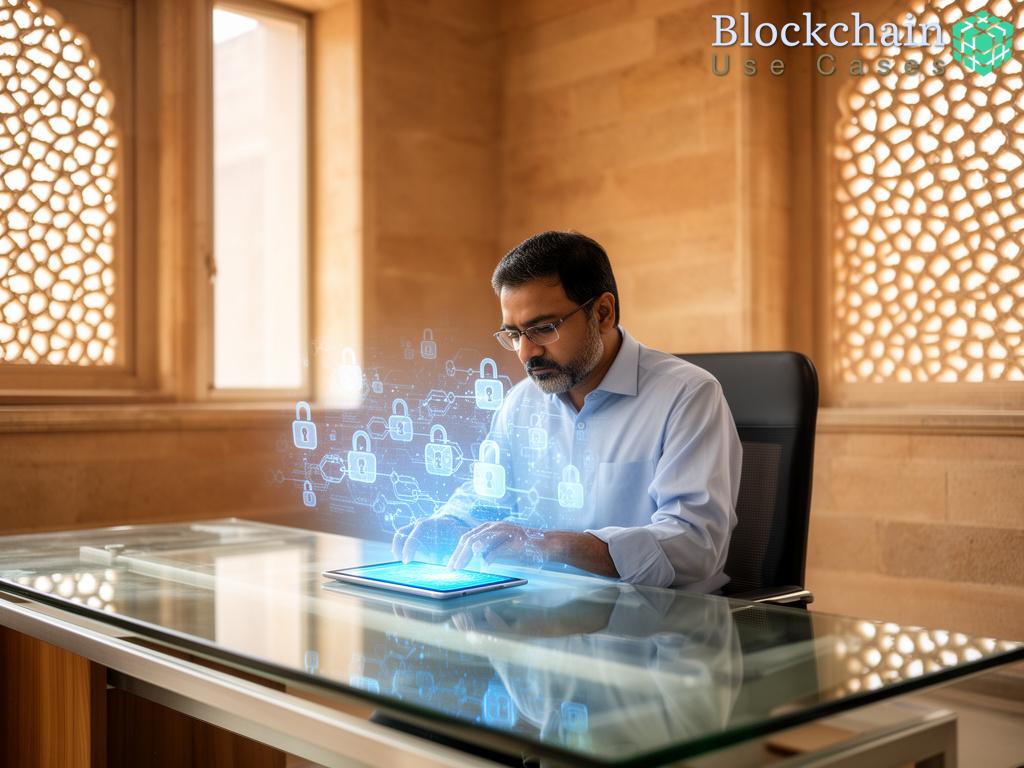Blockchain Technology in Credential Verification
In today’s digital landscape, the verification of extracurricular activities and achievements has become increasingly complex. Traditional methods often rely on paper-based records, which can be easily forged or manipulated. Enter blockchain technology, a revolutionary digital ledger system that promises to enhance the integrity and transparency of credential verification. This article explores how blockchain is transforming the way we authenticate achievements.
One of the most significant advantages of blockchain technology is its inherent security features. Each transaction or entry made on a blockchain is recorded in a decentralized manner, making it nearly impossible to alter or delete. This level of security ensures that once a credential is verified, it remains immutable and accessible to all authorized parties.
Moreover, blockchain’s transparent nature allows stakeholders—such as educational institutions, employers, and students—to verify credentials in real-time. No longer will applicants need to rely on lengthy verification processes; a quick scan of a blockchain entry can confirm the authenticity of a certificate or achievement.
The comparison between traditional verification methods and blockchain-based verification highlights the transformative potential of this technology. Below is a summary table that illustrates the key differences:
| Aspect | Traditional Verification | Blockchain Verification |
|---|---|---|
| Security | Susceptible to fraud | Immutable and tamper-proof |
| Time | Lengthy processing times | Instantaneous verification |
| Accessibility | Restricted access | Decentralized and open |
| Cost | Higher administrative costs | Lower operational costs |
As shown in the table, blockchain not only enhances security but also streamlines the verification process, making it more efficient and cost-effective.
The integration of blockchain technology into credential verification signifies a new era in how we validate achievements. As educational institutions and organizations begin to adopt this technology, we can expect a significant reduction in credential fraud and an increase in trust among stakeholders. Students and professionals alike will benefit from a more reliable and efficient system that recognizes their true capabilities.
Decentralized Systems for Authenticating Achievements
In the quest for authenticity and reliability in credential verification, decentralized systems powered by blockchain technology emerge as a transformative force. By decentralizing the verification process, these systems eliminate the need for a central authority, thereby enhancing trust and security. This shift not only mitigates risks associated with fraud but also empowers individuals to maintain control over their own achievements.
Decentralization in blockchain technology allows for a distributed network where each participant holds a copy of the entire ledger. This means that once an achievement is recorded, it is verified by multiple nodes within the network, ensuring a consensus on its authenticity. Such a mechanism not only strengthens the validation process but also minimizes the chances of tampering or unauthorized alterations.
With decentralized systems, individuals are granted greater ownership of their accomplishments. Rather than relying on third-party institutions to manage and verify their credentials, users can store their achievements directly on the blockchain. This shift fosters a sense of agency and ensures that individuals can easily share their verified credentials with prospective employers or educational institutions.
The adoption of decentralized systems for credential verification offers several advantages:
- Enhanced Security: Achievements are encrypted and stored across a network, making them highly secure against unauthorized access.
- Real-Time Verification: Stakeholders can access verified credentials instantly, reducing the time spent on lengthy verification processes.
- Cost Efficiency: Lower operational costs are achieved as the need for intermediaries is significantly reduced.
- Global Accessibility: Individuals can access their credentials from anywhere in the world, broadening opportunities for education and employment.
In conclusion, the integration of decentralized systems into credential verification represents a significant advancement in how we authenticate achievements. By leveraging the strengths of blockchain technology, we are not only enhancing security and reliability but also empowering individuals to take charge of their own credentials, ultimately fostering a more trustworthy digital landscape.
Enhancing Trust through Immutable Records
In an era where misinformation and credential fraud run rampant, the demand for trustworthy verification systems has never been more pressing. Blockchain technology, with its unique characteristics, offers a solution that not only addresses these concerns but also strengthens the credibility of achievements and activities. By leveraging the power of immutable records, stakeholders can foster a landscape where trust is paramount and authenticity is guaranteed. This section delves into how immutable records contribute to a more reliable verification process.
At the core of blockchain technology lies the principle of immutability. Once a record is entered into the blockchain, it becomes nearly impossible to alter or delete. This unchangeable nature is crucial for credential verification, as it ensures that once a student’s extracurricular achievements are documented, they remain intact and verifiable. Such assurance not only minimizes the risk of fraud but also enhances the overall trustworthiness of the data. Stakeholders, including educational institutions and employers, can confidently rely on this unalterable data when assessing the qualifications of applicants.
The implementation of immutable records fosters a culture of accountability among users. When individuals know their achievements are permanently recorded, they are more likely to act with integrity. This shift in mindset promotes a sense of responsibility, encouraging students and professionals to engage in genuine extracurricular activities that reflect their true capabilities. Moreover, as employers and educational institutions recognize the reliability of blockchain-verified credentials, they are more inclined to trust not only the records but also the individuals behind them.
Furthermore, this accountability extends beyond the individual level. Organizations that participate in the blockchain network are also held to higher standards. By contributing to a transparent system, they must ensure that the achievements they validate are authentic and representative of true accomplishments. This collaborative environment strengthens the overall integrity of credential verification processes, ultimately benefiting all involved parties.
The integration of immutable records through blockchain technology is not merely a technical enhancement; it represents a fundamental shift in how we perceive and verify achievements. By embedding trust into the very fabric of credential verification, blockchain creates an ecosystem where authenticity thrives and fraudulent activities are significantly diminished. As we continue to navigate the complexities of the digital age, the establishment of reliable verification systems will play a pivotal role in shaping the future of education and employment.
The Role of Smart Contracts in Activity Validation
In the evolving landscape of credential verification, smart contracts have emerged as a game-changing technology that further enhances the reliability of validating extracurricular activities and achievements. These self-executing contracts, with the terms of the agreement directly written into lines of code, facilitate and automate the verification process on the blockchain, ensuring that records are accurate, timely, and secure. By integrating smart contracts into the verification framework, we can streamline operations and reduce the potential for human error, thus promoting a more trustworthy system for all stakeholders involved.
One of the most compelling features of smart contracts is their ability to execute automatically when predefined conditions are met. For example, when a student completes a specific number of volunteer hours or achieves a particular grade, the smart contract can autonomously verify this information and record it onto the blockchain. This eliminates the need for intermediary verification processes, allowing for real-time validation of achievements. The immediacy with which these contracts operate not only accelerates the verification process but also enhances the overall user experience, as students can quickly share their verified credentials without delays.
Furthermore, smart contracts bolster the integrity of the verification process by establishing clear, unambiguous criteria for validation. By specifying the requirements that must be met for recognition, these contracts minimize discrepancies and misunderstandings that often arise in traditional verification systems. For instance, if an organization requires specific documentation to validate a student’s participation in an event, the smart contract can stipulate these requirements upfront, ensuring that all parties have a shared understanding of what constitutes valid participation. This level of transparency is paramount in building trust among educational institutions, employers, and students alike.
Additionally, the use of smart contracts can significantly reduce administrative costs associated with credential verification. Traditional methods often involve extensive paperwork and manual checks, which can be both time-consuming and costly. In contrast, smart contracts operate on a decentralized platform where the need for intermediaries is greatly diminished. This not only leads to cost savings for organizations but also allows them to allocate resources more effectively towards enhancing educational programs and student support services.
In conclusion, the incorporation of smart contracts into the blockchain ecosystem is a transformative advancement in the realm of validating extracurricular activities and achievements. By automating verification processes, establishing clear criteria, and reducing costs, smart contracts empower individuals and organizations alike to navigate the complexities of credentialing with confidence. As we move towards a more digital future, the role of smart contracts in enhancing verification will undoubtedly play a crucial part in shaping a more reliable and authentic landscape for achievements.
Impact on Educational Institutions and Employers
The advent of blockchain technology is not just a technological evolution; it represents a paradigm shift for educational institutions striving to enhance credibility and operational efficiency. By implementing blockchain-based systems for verifying extracurricular activities and achievements, schools and universities can significantly reduce the instances of credential fraud that have plagued traditional methods. This digital ledger ensures that records are immutable, making it increasingly difficult for students to misrepresent their qualifications. Furthermore, educational institutions can enjoy a streamlined verification process, allowing them to quickly validate student achievements without extensive administrative burdens.
With real-time access to verified credentials, educators can focus more on nurturing talent rather than spending valuable time on lengthy verification procedures. This immediacy contributes to a more dynamic educational environment, where accomplishments can be acknowledged and rewarded promptly. Institutions that embrace this technology will likely gain a competitive edge, attracting prospective students who value transparency and integrity in credentialing.
For employers, the integration of blockchain technology into credential verification serves as a powerful tool to enhance trust and confidence in prospective candidates. In an era where the authenticity of qualifications can often be questioned, blockchain offers a solution that guarantees *uncompromised verification* of an individual’s achievements. Employers can quickly access a candidate’s verified records, significantly reducing the risk associated with hiring decisions. This is particularly essential in a competitive job market where skills and experience must be accurately represented.
Moreover, the use of blockchain fosters a more collaborative relationship between employers and educational institutions. As both parties adapt to this transformative technology, they can work together to establish standardized criteria for evaluating qualifications, ensuring that both the educational achievements and the skills acquired are relevant to industry needs. This alignment not only enhances the recruitment process but also helps in tailoring educational programs to better prepare students for the workforce. With the assurance of verified credentials, employers can make informed hiring decisions, leading to a more competent and qualified workforce.





